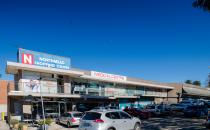You are here
Preventive care & check-ups

Are regular check ups really necessary?
….....“I think my teeth are in good shape. There hasn't been any pain or problem at all, so I am ok. Don't think I really need a check up. I'll do it later.....”
If that is what you were thinking, I urge you to reconsider.
Why? Because most problems in the mouth region are painless until it is too late. As a rule of thumb, “pain” is unfortunately not the best indicator for problems in the mouth.
Regular checkup & care, however, is the best care you can give your smile.
It allows us to help you prevent problems, to detect undesirable conditions as early as possible (thus minimising their impact with appropriate treatment/advice), and to help you improve your smile. It is, in a way, similar to car maintenance -- if regular servicing is being carried out, it saves you money and inconvenience in the long run, while prolonging the life of the car. Whereas if you run it until it breaks down badly, it could end up being a total write off.
Some examples of what will be looked at and possible solutions:
Dietary advice....what & how not to eat/drink to reduce risk of tooth decay/erosion
Bad breath....can it be fixed?
Tooth & jaw development for the growing child....crowded or missing teeth, 'funny' bite....Sometimes early detection and intervention can either solve the problem, or at least make it less severe.
Sealants....special coatings to seal the grooves and pits of newly erupted teeth. Helps prevent decay. Usually done for kids but sometimes suitable for adults too.
A better smile....whitening, veneers, braces....Recent advancement in dentistry makes improving your smile sooo much easier than ever before
Gum disease....one of the most common reasons for tooth loss in adults. Contributed by the bacteria in your mouth. The bacteria 'lives' inside the plaque and the tartar (hardened, calcified plaque). You can brush & floss the plaque away, but not the tartar. That is why you need a professional clean!
Decay....small decay picked up early is easily fixed with a filling. Leave it long enough and we may end up having to remove the tooth, or to do a root canal treatment to save it.
Remember, too, that our body continues to change everyday with age, including our immune system, salivary function, bony structures, soft tissues etc. Medication can sometimes have an impact on them as well. Hence regular monitoring and care are essential in maintaining your smile and your oral health.
So how frequent should a 'Regular Check Up' be?
To be practical, our recommendation usually varies from 'every 6 months' up to 'every 12 months' --- basically in response to individual patient's condition of the time.
For example, if the patient changes his/her oral hygiene routine as recommended and the oral condition improves, we will tend to extend the time interval between upcoming check ups. And if the patient starts slipping again, we may then revert to a more frequent visit mode.
You may also ask: "Are xrays really necessary?"
The answer is "Yes."
Xrays are an important part of good, long term dental care. The back teeth are rather thick and broad. When a small decay starts to develop in the contact area between two of those back teeth, it cannot be picked up by the naked eye during clinical examination, but it will show up on xrays.
More often than not, by the time the decay is visible by the clinician, it is either very deep and getting very close to the pulp (ie the nerve of the tooth), or is already into the pulp. Once the pulp is exposed, you will need either a root canal treatment or an extraction. Even if the decay is only very deep and has not exposed the pulp, there is a much greater chance that the pulp tissue will gradually deteriorate and perish later on, resulting in the need for a root canal treatment or an extraction.
Therefore, it is simply easier and much more comfortable to just do a simple filling while the decay is still relatively small. In the long run, it is easier on your pocket as well.
We recommend bite-wing xrays to be taken every 12 to 24 months, depending on an individual's caries (decay) risk and susceptibility.
For more Home Care instructions, please see "Patient Resources/Clinical Instructions/Others"
Our Doctors
Opening hours
- Monday: 9am–5pm
- Tuesday: 9:30am–6pm
- Wednesday: 9am–5pm
- Thursday: 9am–5pm
- Friday: 9am–5.30pm
- Saturday: 9am–1pm
- Sunday: Closed

